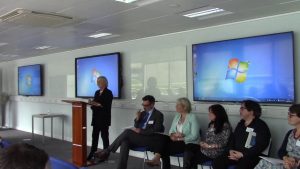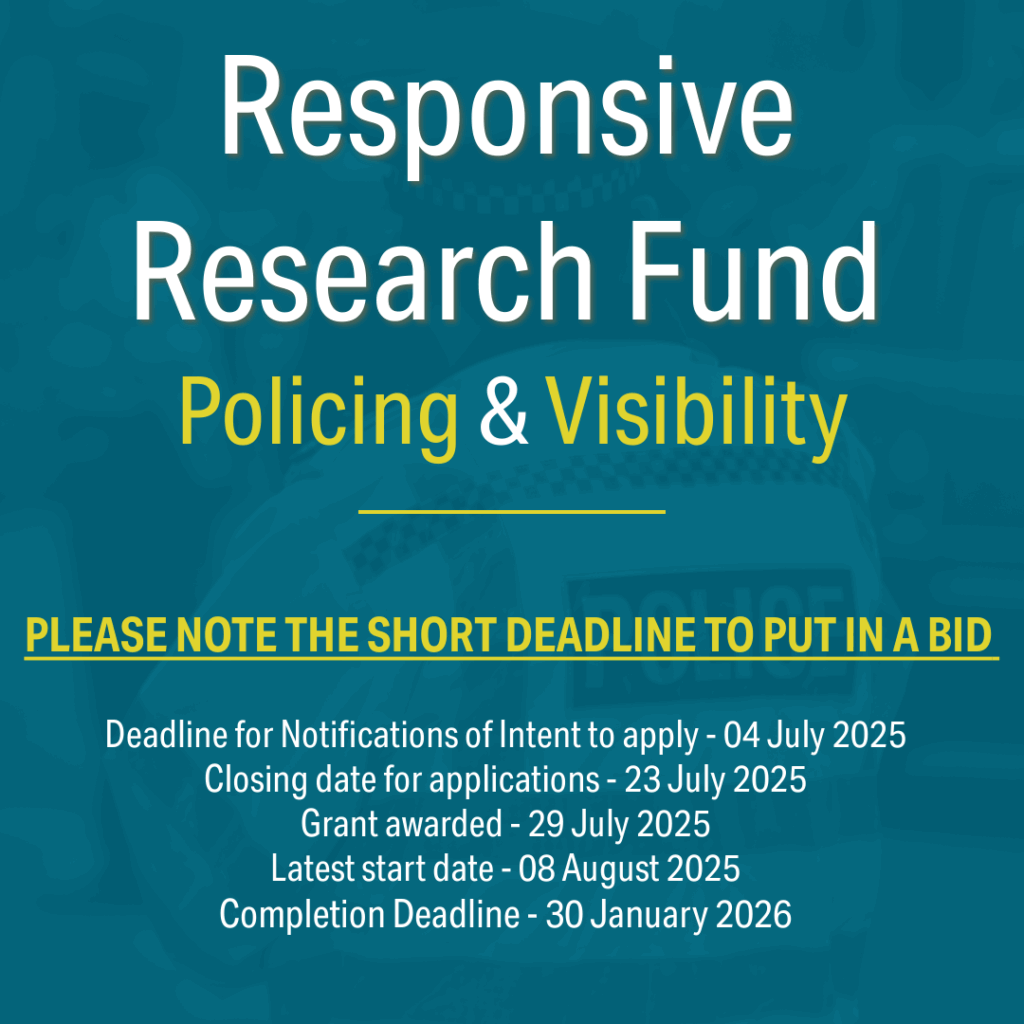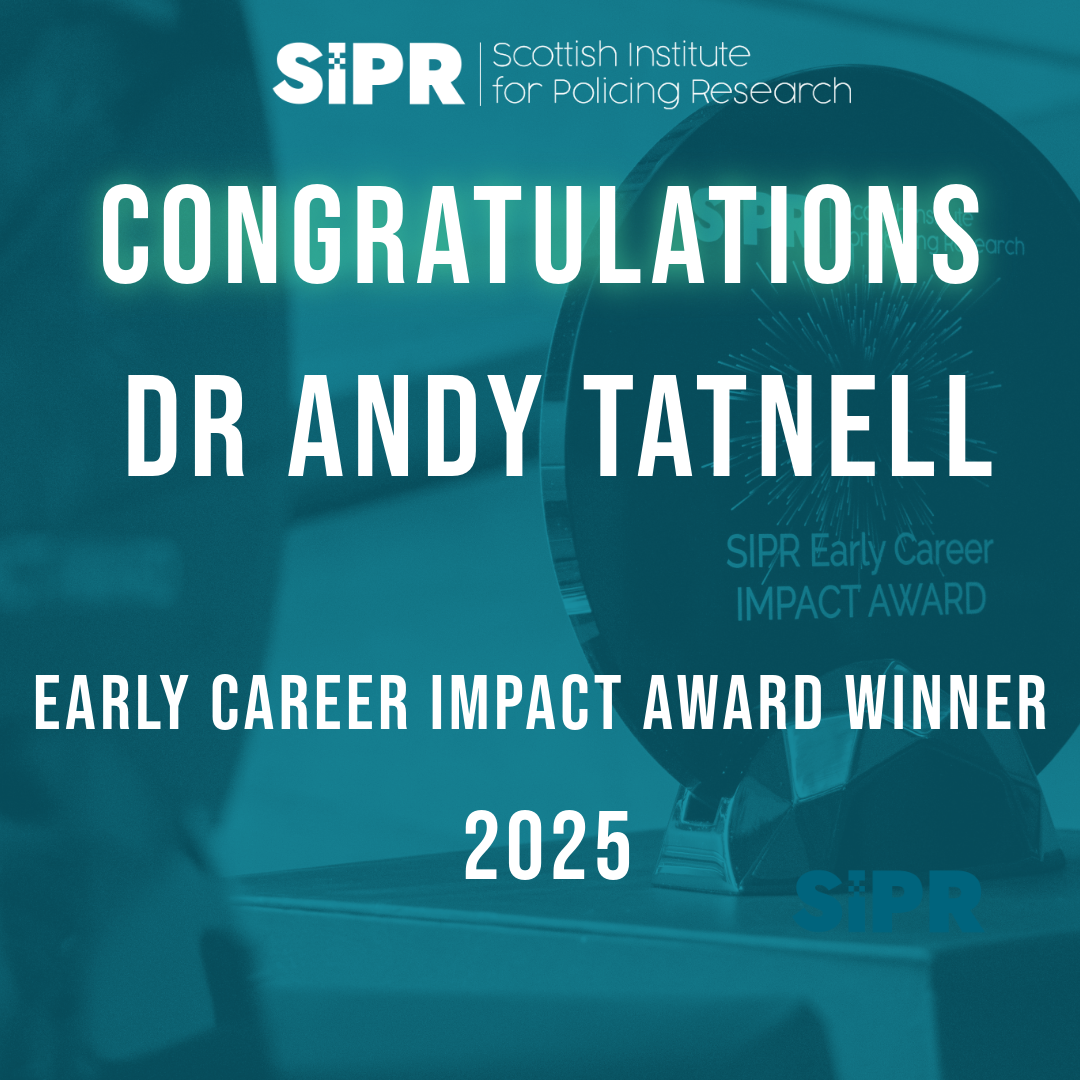By Richard Cockbain, PG Research, University of Dundee / Police Scotland

On 31st May 2018 Queen Margaret University hosted a Knowledge Exchange Event entitled ‘Partnering to Enable Evidence-Based Practices in Policing’.
The event was attended by an audience drawn from a range of backgrounds, with representation from Police Scotland, academics and students from a number of universities, alongside representatives of organisations such as PIRC and SACRO, as well as HM Chief Inspector of Prisons for Scotland and former Chief Constable of Lothian and Borders Police, David Strang.
The evening consisted of five presentations from practitioners and academics who spoke on very different topics relating to policing and criminal justice related work and research.
The key-note speaker, the recently appointed HM Chief Inspector of Constabulary in Scotland, and recently retired Chief Superintendent, Gill Imery, spoke of the role of inspection in improving policing across Scotland. She discussed the significant changes in processes and culture within Police Scotland over the last two years, moving towards the headline objectives of the formation of the single-force to reduce duplication in back office functions and to ensure equity of access to specialist services across the country. The outlook offered was a positive one with inspection focusing on outcomes rather than compliance and HMICS working with Police Scotland to achieve greater public support and a greater feeling of safety in our communities.
Dr Ann Clark spoke about her research regarding the ‘Awareness of and Support for Speech, Language and Communications Needs (SLCN) in Scotland’s Criminal Justice System’, highlighting the surprising prevalence of SLCN within those subjected to CJ processes. She demonstrated the significance of SLCN due to their impact on the individuals’ ability to navigate the CJ system, outlining ways research can be used to improve opportunities for this group.
Dr Ian Elliot presented on Organisational Strategy and Change in Public Administration, with the Scottish approach being asset-based, focused on the co-production of services and an improvement in philosophy. He spoke about Leadership Development and community empowerment, including the challenges and barriers faced in these areas.
Dr Jamal Mansour’s research looks at eye witness identification and methodology that can be employed by practitioners to assess reliability. Her study found that immediately assessed confidence, depending on method, is related to and provides an indicator of reliability – an area of business which attendee Detective Superintendent Pat Campbell had a significant interest in. Dr Mansour’s work continues and it is her intention to replicate the study and broaden the research to include video line-ups and non-pristine conditions.
Alison Strang, a Senior Research Fellow, and Paul Matheson of Police Scotland’s Diversity Unit, concluded the presentations with their work on refugee integration. They discussed their research with refugees and locals across the UK and the development of a framework which provides indicators of integration. They continued to discuss ongoing work by police and partners to increase engagement and provide training to those in high impact roles amongst a number of other work strands designed to aid integration.
The evening finished with a panel discussion, with a number of questions from the floor, concluding with an issue raised by Dr Mansour to all those present. She highlighted the need for a mechanism, or interface, between Police Scotland and academia through which a research strategy can be set and greater collaboration achieved. This, it was understood, was an ongoing piece of work.
At the conclusion of the formal event, all in attendance continued discussions over a drink with connections made, ideas sparked and knowledge exchanged.
For further information on the event, see: https://www.qmu.ac.uk/news-and-events/events-listing/partnering-to-enable-evidence-based-practices-in-policing/
Comments are closed, but trackbacks and pingbacks are open
This work is licensed under a Creative Commons Attribution-NonCommercial-NoDerivatives 4.0 International License



